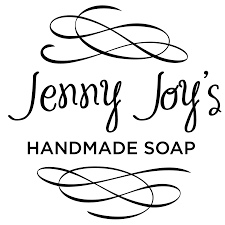In a world filled with an abundance of skincare products, it's essential to prioritize the health and well-being of our skin. Handmade soaps, crafted with love and natural ingredients, have garnered attention for their potential benefits.
In this comprehensive guide, we'll explore the world of handmade soaps, addressing their impact on skin health, safety, and specific needs like eczema and dry skin. Let's dive into the beauty and science behind these aromatic bars.
Are Natural Handmade Soap Hygiene?
One of the most appealing aspects of handmade soaps is their focus on hygiene. These soaps are carefully crafted in small batches, ensuring quality control and attention to every detail. Curious about the germ-fighting properties of handmade soap? We've got you covered with an informative article that explores the science behind handmade soap's potential to effectively combat germs. Does Handmade Soap Kill Germs and make an informed choice for your skincare routine.
Unlike mass-produced commercial soaps, handmade varieties often contain fewer synthetic additives, reducing the risk of irritation and allergic reactions. This aspect of handmade soap production is particularly beneficial for those with sensitive skin.
Is Handmade Soap Good for Skin?
Yes! Handmade soaps are formulated with skin-loving natural ingredients like nourishing oils, rich butters, and aromatic essential oils. These ingredients work together to cleanse your skin without stripping it of its natural oils.
The glycerin, a natural byproduct of the soap-making process, helps retain moisture, leaving your skin feeling soft, supple, and radiant.
Is Handmade Soap Better?
The answer lies in the ingredients. Handmade soaps often feature plant-based oils, organic additives, and essential oils that offer unique therapeutic benefits. They avoid harsh chemicals that may be present in commercial soaps.
By choosing handmade soap, you're opting for a more personalized, gentle, and environmentally-conscious approach to skincare. The differences between handmade vs commercial soaps, we've put together a comprehensive guide that delves into the unique qualities of each type. Discover the benefits of natural ingredients, the artisanal touch of handmade craftsmanship, and why many people are choosing to switch to handmade soaps for a more personalized and skin-friendly experience. Explore our article on the topic: [Handmade vs Commercial Soap: Which is Right for You?](insert link here)
Which Natural Soap is Best for Eczema?
Eczema-prone skin requires special care, and certain natural handmade soaps can provide relief. Look for soaps containing ingredients like colloidal oatmeal, calendula, chamomile, and gentle essential oils like lavender or tea tree.
These ingredients are known for their soothing properties, making them ideal choices for those with eczema. Our Pine tar soap is often recommended for eczema due to its potential soothing properties, but its effectiveness can vary depending on the individual and the severity of their eczema.
Pine tar, a natural substance derived from pine trees, has been historically used for its potential anti-inflammatory and skin-calming effects. Some people with eczema find relief when using pine tar soap as it may help reduce itching and inflammation.
However, it's essential to keep in mind that eczema is a complex skin condition, and what works for one person may not work for another. It's essential to consult with a dermatologist or a healthcare professional before using any new products, including pine tar soap, especially if you have eczema or any skin sensitivities. They can provide personalized recommendations based on your specific needs and guide you on the best approach to managing eczema.
Are Handmade Soaps Safe?
Absolutely. Handmade soaps, when crafted responsibly, are safe for most skin types. It's important to choose trusted artisans who use high-quality ingredients and follow proper soap-making practices.
Always check the ingredient list to ensure it aligns with your skin's needs, and consider doing a patch test if you have sensitive skin. Which Natural Handmade Soap is Best for Dry Skin? Want to read a detail guide about how to make handmade soap? Click here.
For dry skin, opt for handmade soaps enriched with hydrating ingredients like shea butter, cocoa butter, and olive oil. These moisturizing components help replenish the skin's natural moisture barrier, leaving it feeling silky smooth and preventing further dryness.
Which Handmade Soap is Best for Skin Whitening?
While it's essential to celebrate your skin's natural tone, some handmade soaps can help improve skin texture and appearance. Look for soaps containing natural exfoliants like oatmeal or gentle fruit enzymes like papaya. These ingredients can help reveal a more radiant complexion over time.
Our Sandalwood and Patchouli Natural handmade soaps offer a luxurious and nurturing experience for your skin. Their carefully selected ingredients and personalized formulations can provide benefits beyond mere cleansing.
Whether you're seeking relief for specific skin conditions, aiming to maintain healthy skin, or simply enjoy the sensory delight of artisanal soap, the world of handmade soaps has something to offer. Embrace the goodness of nature, choose your soap wisely, and let your skin shine with health and beauty.
Note: It's important to conduct personal research and, if needed, consult with a dermatologist before introducing new skincare products, especially if you have sensitive or problematic skin.

